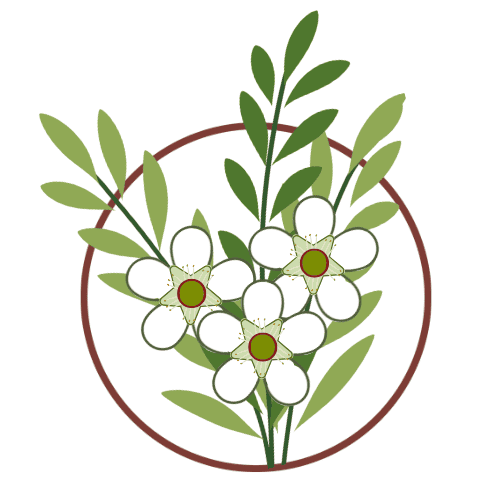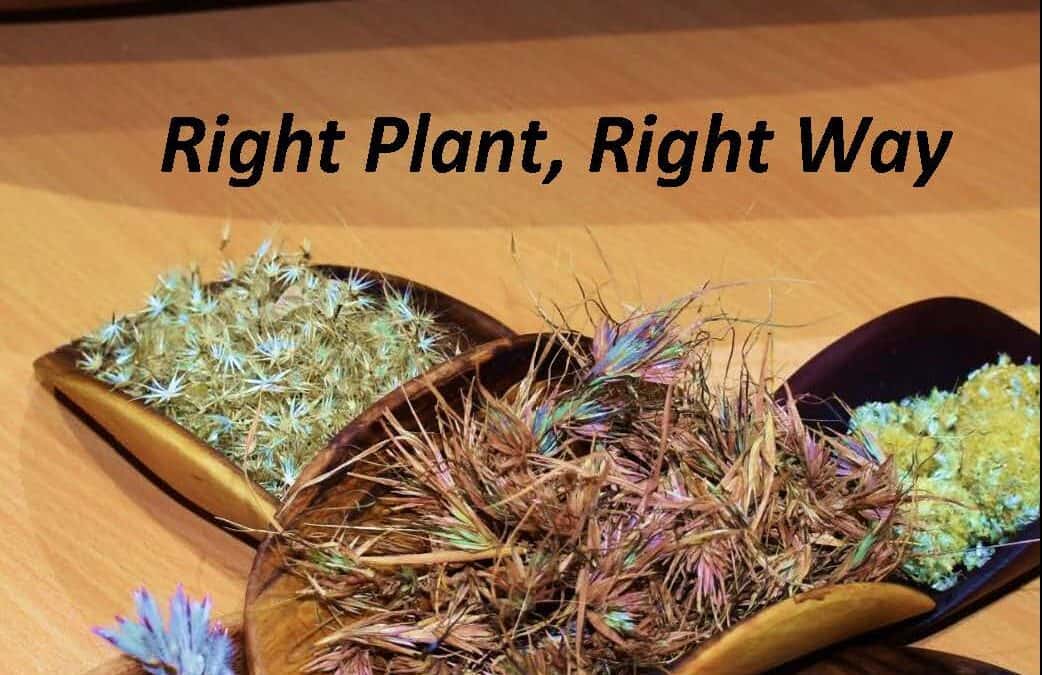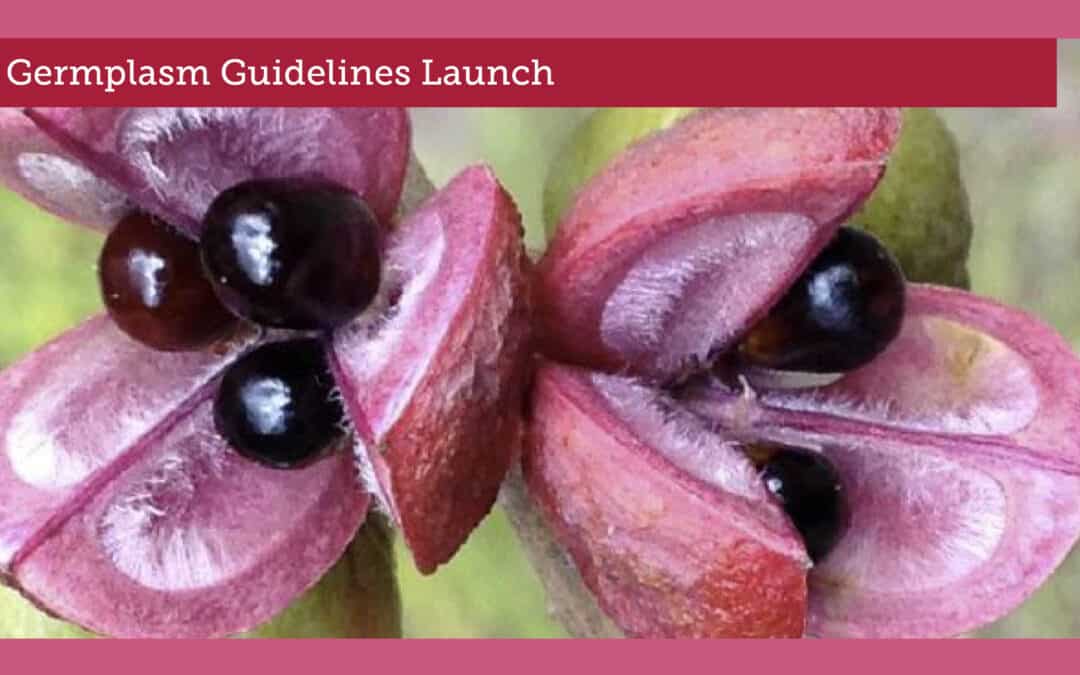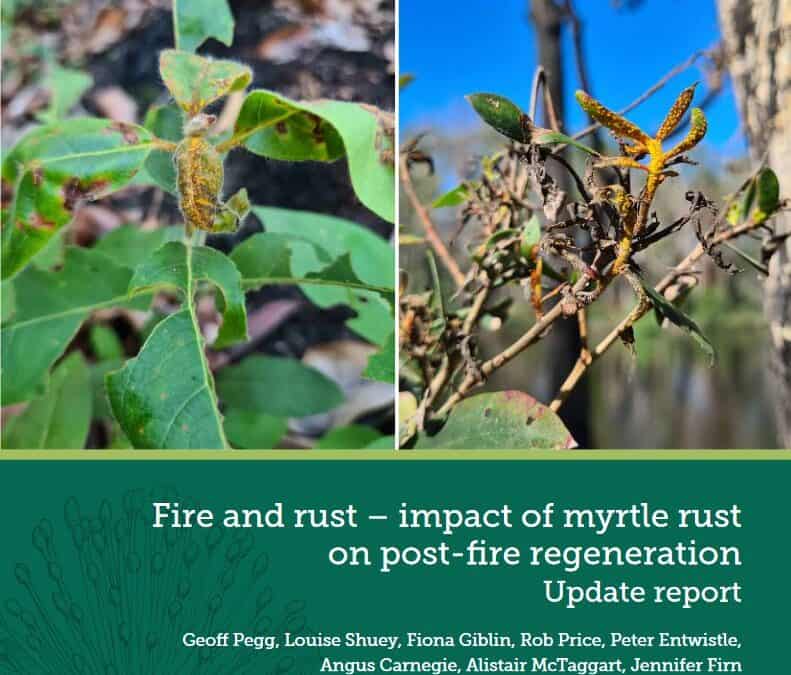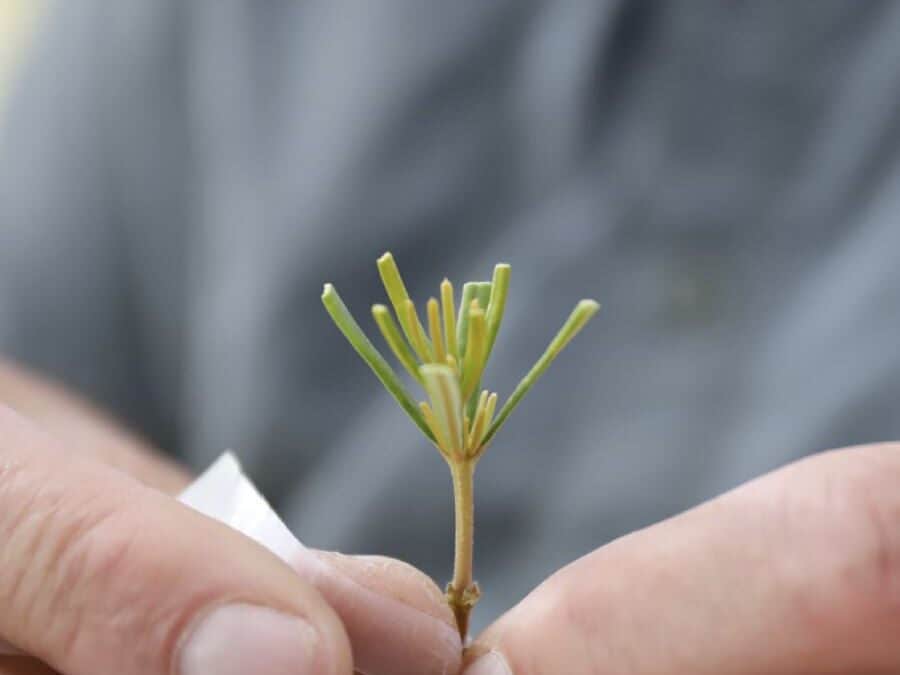
Nov 5, 2021 | News
Recordings of the Australasian Seed Science Conference plenary and workshop sessions are now available to registered delegates here. These recordings are password protected in recognition of the investment of delegates, but access can be purchased via the same link.

Nov 5, 2021 | News
This report presents findings on a comprehensive review of the revegetation sector in Victoria including public submissions and the Right Plant, Right Way workshops held in April 2021. It includes opportunities to respond to challenges and direction for the future of the sector to heal Country. You can download the report here.

Sep 30, 2021 | News
ANPC is proud to announce the launch of the new Germplasm Guidelines, described by one contributor as “one of the most useful and practical tools for the uncertain years ahead of us”. We thank the many contributors who wrote chapters or one of the fifty case studies in this edition and others who provided peer review during the process. Plant material – germplasm – is stored in Australia’s conservation seed banks, as living collections in botanic gardens, tiny shoots in tissue culture, and even as cryo-stored seeds ready to be reinvigorated many years after storage. These guidelines showcase the latest techniques, literature and procedures for optimising germplasm storage and use. With plenty of infographics, illustrations and photos, these guidelines are necessary but enjoyable reading for staff within conservation agencies, scientists, nursery staff, students, volunteers, and anyone interested in applied plant biology. The Germplasm Guidelines are available for free download: https://www.anpc.asn.au/plant-germplasm/

Sep 30, 2021 | News
In case you missed it! Want to know why the Germplasm Guidelines were updated and what is included in this third edition? Keen to hear what the contributors think about when they’re not writing, researching and growing plants? Check out the Plant Germplasm Conservation playlist on the updated ANPC YouTube channel.

Sep 30, 2021 | News
Extensive surveys assessing the impact of Myrtle rust (Austropuccinia psidii) were conducted following the 2019/20 wildfires. The two reports are now available for download from our website and make for sobering reading. Myrtle rust symptoms and damage were found in all survey sites in fire-affected areas of south-east Queensland and NSW south to the Central coast region. New host species have been identified including Leptospermum speciosum (Showy tea tree), Eucalyptus pyrocarpa (Large-fruited blackbutt) and Eucalyptus amplifolia subsp. amplifolia (Cabbage gum). Significant impacts were identified on the endangered Rhodamnia rubescens (Scrub turpentine) and Uromyrtus australis (Peach myrtle). Myrtle rust symptoms have been observed for the first time on Eucalyptus pilularis (Blackbutt) and Syncarpia hillii (Satinay) on World Heritage K’gari (Fraser Island). Regeneration of Melaleuca quinquenervia (Broad-leaved paperbark), particularly in New South Wales, is of concern with the loss of established trees, and only 15 to 35% of seedlings showing evidence of resistance. Melaleuca nodosa (Prickly-leaved paperbark) is highly susceptible to Myrtle rust with only small numbers of trees showing resistance/tolerance to the disease. Longer-term monitoring of all sites is required to understand the impacts of Myrtle rust on Myrtaceae regenerating after wildfire. The ANPC would like to thank the Threatened Species Recovery Hub for funding this project.

Sep 30, 2021 | News
2021 marks the 30th anniversary of the ANPC! The Summer edition of Australasian Plant Conservation will celebrate this milestone. Articles on the history of the ANPC, members’ retrospectives and reflections on plant conservation issues (and changes over the past 30 years) are encouraged, with a deadline of 1 November 2021. We are still accepting regular articles (including on issues relevant to plant conservation, and plant responses to fire) as usual, for the Anniversary Edition. Find out more here.

